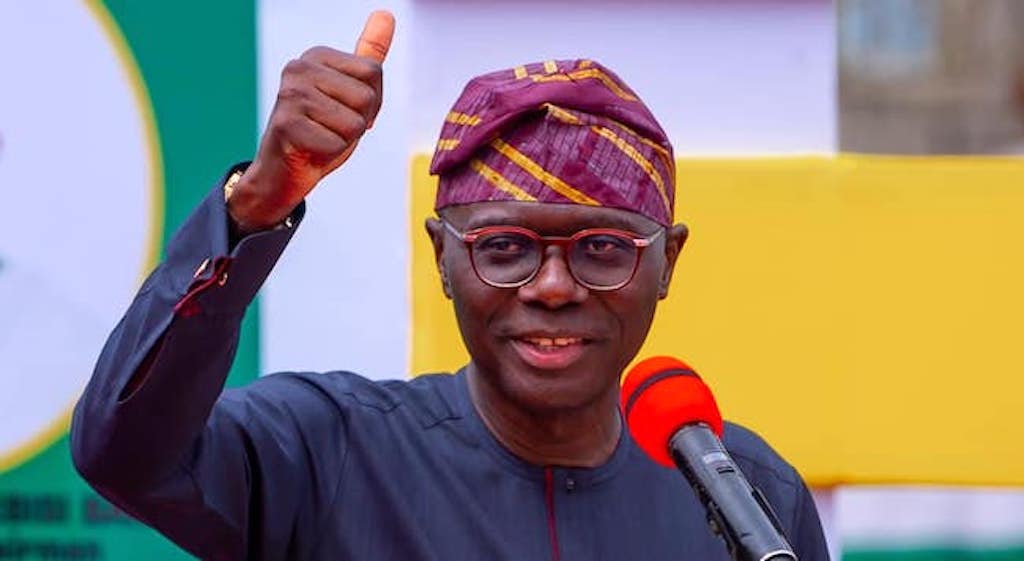
Lagos State Government has reaffirmed its commitment to funding its ambitious ₦3.367 trillion 2025 budget primarily through Internally Generated Revenue (IGR), reducing reliance on borrowing.
During a budget analysis press briefing held at the Press Center, Alausa, Ikeja, the Commissioner for Economic Planning and Budget, Ope George, and the Commissioner for Finance, Abayomi Oluyomi, outlined the state’s strategic financial plans.
Budget Breakdown and Revenue Targets
The 2025 Lagos State budget is expected to be funded through a total revenue estimate of ₦2.968 trillion, with the following components:
- Internally Generated Revenue (IGR): ₦2.230 trillion
- Capital Receipts: ₦111.839 billion
- Federal Transfers: ₦626.137 billion
This translates to a monthly revenue target of ₦247.331 billion. The Lagos Internal Revenue Service (LIRS) is expected to contribute ₦1.4 trillion (63%) of the projected IGR, while other ministries, departments, and agencies (MDAs) will generate ₦830.177 billion (37%).
Strategies for Revenue Growth
Commissioner Ope George highlighted the state’s focus on broadening the tax net and enhancing revenue collection through:
- Technology adoption
- Economic intelligence and data analysis
- Expanding taxation in informal sectors such as tourism, real estate, transportation, and trade
Despite the revenue drive, a budget deficit of ₦398.662 billion will be funded through:
- External Loans: ₦28.751 billion
- Internal Loans: ₦203.831 billion
- Bond Issuance: ₦150.000 billion
- Other sources: ₦16.080 billion
Expenditure Allocation
The total expenditure of ₦3.367 trillion is categorized as follows:
- Recurrent Expenditure: ₦1.296 trillion (38%)
- Personnel Costs: ₦401.120 billion
- Overhead Costs: ₦799.511 billion
- Debt Charges: ₦95.000 billion
- Capital Expenditure: ₦2.071 trillion (62%)
The increase in personnel costs by ₦146.003 billion compared to 2024 reflects the state’s commitment to salary increments aimed at mitigating the impact of inflation and fuel subsidy removal.
Infrastructure and Development Projects
Lagos State’s 2025 budget prioritizes massive infrastructure renewal across the five divisions, with key projects including:
- Road Construction & Rehabilitation
- Samuel Ekundayo/Toga Road (Badagry)
- Abaranje Road (Alimosho)
- Adamo-Akanun-Agunfoye Lugbusi Roads (Ikorodu)
- Ikeja GRA Roads (Oba Dosunmu, Sasegbon, Sobo Arobiodu, etc.)
- Lekki-Epe Expressway (Phase IIA, 18.6km)
- Opebi Link Bridge to Maryland
- Lagos-Badagry Expressway
- Lekki-Epe (Orisa) Bridge
- 4th Mainland Bridge (Urban renewal studies)
- Transportation & Housing
- Completion of new bus terminals at Abule Egba, Ajah, and Iyana-Ipaja
- Lagos Rail Mass Transit (LRMT) expansion: Mile 2 to Okokomaiko
- 68km Green Line Rail from Marina to Lekki Free Trade Zone
- New jetties and upgrades to existing ones
- Housing developments across IBILE zones
- Youth & Community Development
- Completion of stadia in Ikorodu, Badagry, Epe, Ifako-Ijaye, Ketu, Ibeju-Lekki, Sari Iganmu, and Ajeromi
- Construction of National Youth Service Corps (NYSC) Permanent Camp
Sectoral Allocations
The 2025 budget also includes allocations for various sectors:
- Education: ₦166.310 billion
- Health: ₦173.847 billion
- General Public Services: ₦398.368 billion
- Public Order & Safety: ₦91.472 billion
- Economic Affairs: ₦162.467 billion
- Environment: ₦75.842 billion
- Housing & Community Amenities: ₦26.000 billion
- Recreation, Culture & Religion: ₦37.782 billion
- Social Protection: ₦32.805 billion
A Budget for Sustainability and Growth
Describing the 2025 budget as the ‘Budget of Sustainability,’ Commissioner Ope George emphasized its alignment with Lagos State’s long-term economic goals:
- Infrastructure and Environmental Sustainability
- Economic Diversification
- Social Inclusion & Human Capital Development
- Governance and Institutional Reforms
He assured Lagosians that this budget is designed to ensure economic stability, environmental stewardship, and social equity, fostering sustainable growth for future generations.
